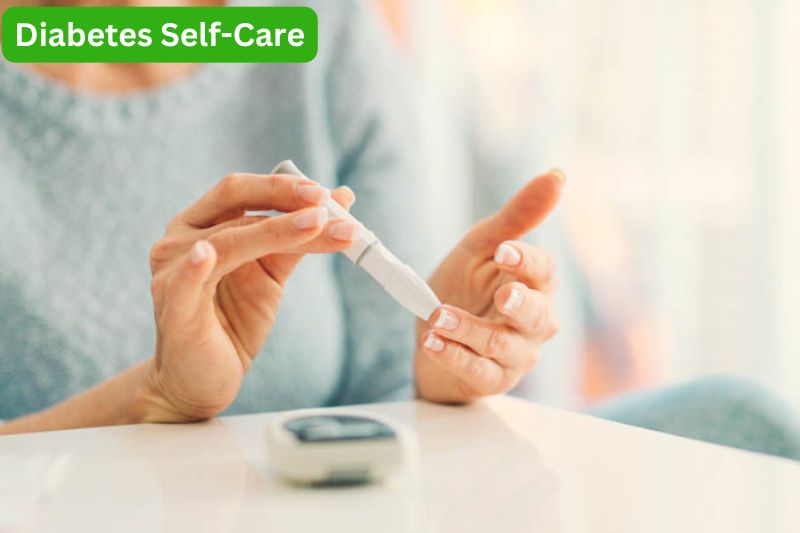Diabetes Self-Care is essential for managing blood sugar levels and preventing complications. From monitoring glucose levels to making healthy lifestyle choices, a proactive self-care routine can significantly improve overall well-being. By following key practices such as regular exercise, a balanced diet, stress management, and proper medication adherence, individuals with diabetes can lead a healthier and more active life.
Diabetes Self-Care: Tips for Better Blood Sugar Control
1. Monitor Blood Sugar Regularly
- Use a glucose meter or continuous glucose monitor (CGM) to track blood sugar levels.
- Keep a log of readings to identify patterns and adjust your management plan accordingly.
- Aim for HbA1c levels below 7% (as recommended by the American Diabetes Association).
2. Maintain a Balanced Diet
- Follow a diabetes-friendly diet rich in fiber, lean proteins, and healthy fats.
- Choose low-glycemic foods like whole grains, legumes, and non-starchy vegetables.
- Control portion sizes and avoid sugary or processed foods.
3. Stay Physically Active
- Engage in at least 150 minutes of moderate exercise per week, such as walking, cycling, or swimming.
- Strength training can improve insulin sensitivity and help with weight management.
- Stay active throughout the day to avoid prolonged sitting.
4. Manage Stress Effectively
- Practice deep breathing, meditation, or yoga to reduce stress-related blood sugar spikes.
- Prioritize self-care activities like reading, hobbies, or socializing to maintain emotional well-being.
- Ensure you get 7–9 hours of quality sleep per night.
5. Take Medications as Prescribed
- Follow your doctor’s advice regarding insulin or oral medications.
- Never skip doses, and consult your healthcare provider before making any changes.
- Keep an emergency plan for low blood sugar (hypoglycemia) by carrying glucose tablets or a snack.
6. Take Care of Your Feet and Skin
- Check your feet daily for cuts, blisters, or infections, as diabetes can cause nerve damage.
- Moisturize your skin to prevent dryness and cracks, reducing the risk of infections.
- Wear comfortable shoes and avoid walking barefoot to protect your feet.
7. Stay Hydrated and Avoid Smoking & Alcohol
- Drink plenty of water to help regulate blood sugar levels.
- Limit alcohol intake and avoid smoking, as both can worsen diabetes complications.
8. Schedule Regular Check-Ups
- Visit your doctor for routine HbA1c tests, cholesterol checks, and kidney function tests.
- Get annual eye exams to prevent diabetic retinopathy.
- Work closely with your healthcare team to adjust your diabetes management plan as needed.
Conclusion
Consistent Diabetes Self-Care is key to effectively managing the condition. By making healthy lifestyle choices, staying proactive with blood sugar monitoring, and following a well-structured self-care routine, individuals can maintain stable glucose levels, reduce the risk of complications, and improve their overall quality of life. Prioritizing self-care empowers those with diabetes to take control of their health and well-being.

 Diabetology2 weeks ago
Diabetology2 weeks ago
 Diabetology2 weeks ago
Diabetology2 weeks ago
 Diabetology6 days ago
Diabetology6 days ago
 Diabetology5 days ago
Diabetology5 days ago
 Diabetology5 days ago
Diabetology5 days ago
 Diabetology4 days ago
Diabetology4 days ago
 Diabetology2 days ago
Diabetology2 days ago
 Diabetology2 days ago
Diabetology2 days ago









